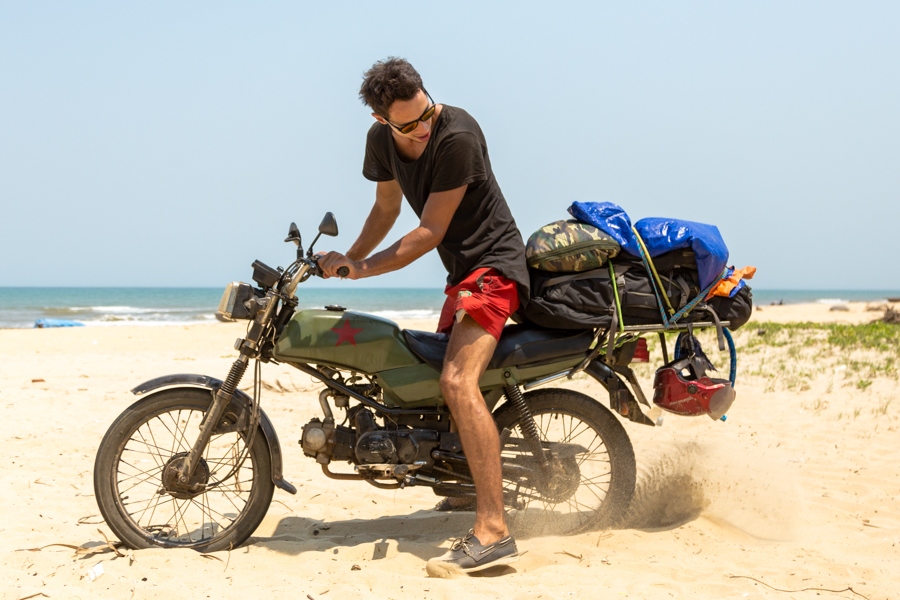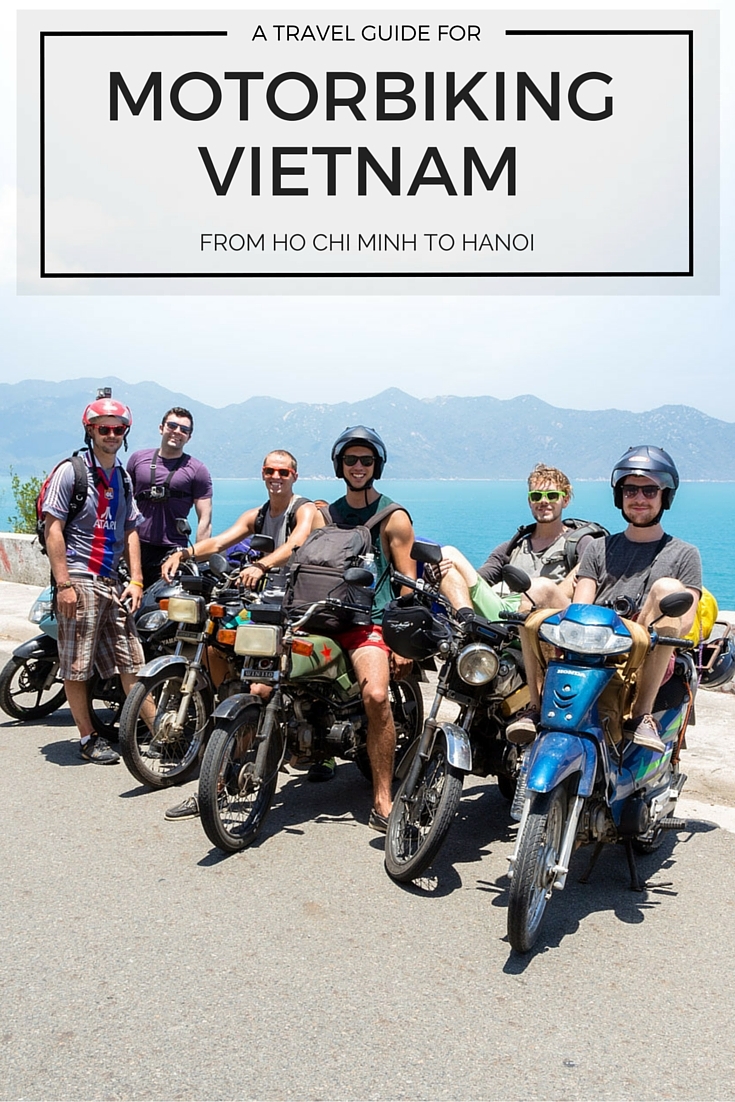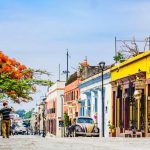Vietnam motorbike trip — A guide to buying & riding a motorbike around Vietnam
This is a step-by-step guide to buying and riding a motorcycle throughout Vietnam. After doing the journey myself in March 2015 and enjoying one of the finest travel experiences I’ve ever had, I’d want to share my recommendations with you in case you’re planning a similar adventure.
Firstly, is it safe?
I believe so, but if you do a google search, you’ll find a lot of people telling you it’s dangerous and you shouldn’t ride a motorbike in Vietnam, and I agree riding a motorbike in Vietnam can be dangerous, the traffic and roads are pretty crazy, but I believe you can ride around Vietnam safely if you’re sensible, keep your wits about you, and use common sense.
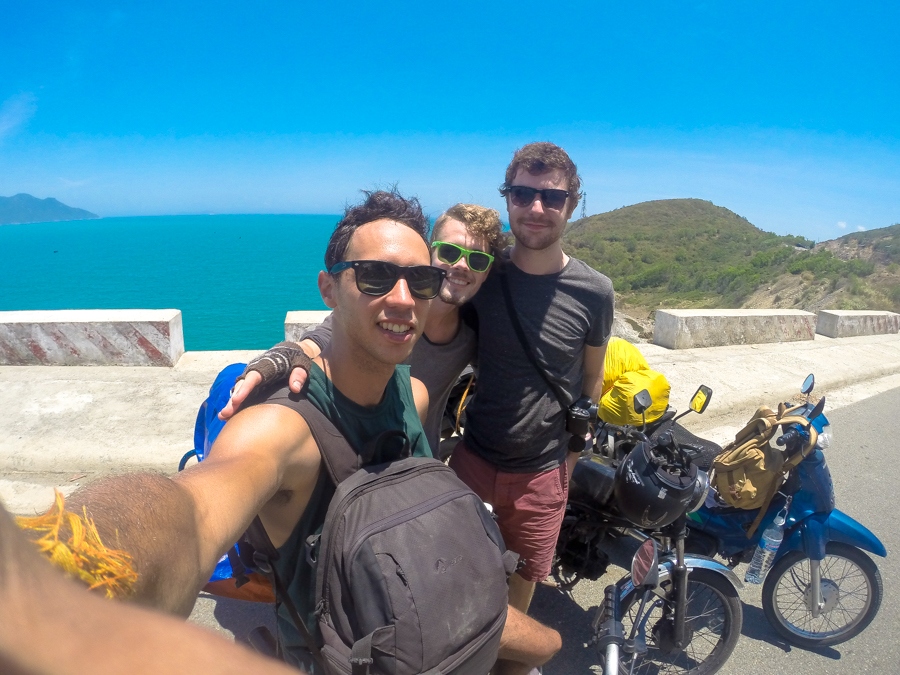

What license will I need?
To legally ride in Vietnam and to be covered by your travel insurance you will need your motorbike license in your home country and an international driver’s license.
(From what I’ve been told is that before 2015 Vietnam didn’t recognize international driver’s licenses, but since then the rules have changed and they apparently now recognized international licenses… So I would advise before you do this trip that you double-check with your insurance company about the licensing so that you know that you are covered…)
When is the best time to travel to Vietnam on a motorbike?
The optimum time to bike is between the months of December and May (with the greatest weather for riding being between January and March); any other time and it will most likely be pouring heavily. I took the trip in March, and the weather was generally sunny with the exception of two rainy days, which were awful; riding in the rain is no fun, so you should certainly avoid the wet season.
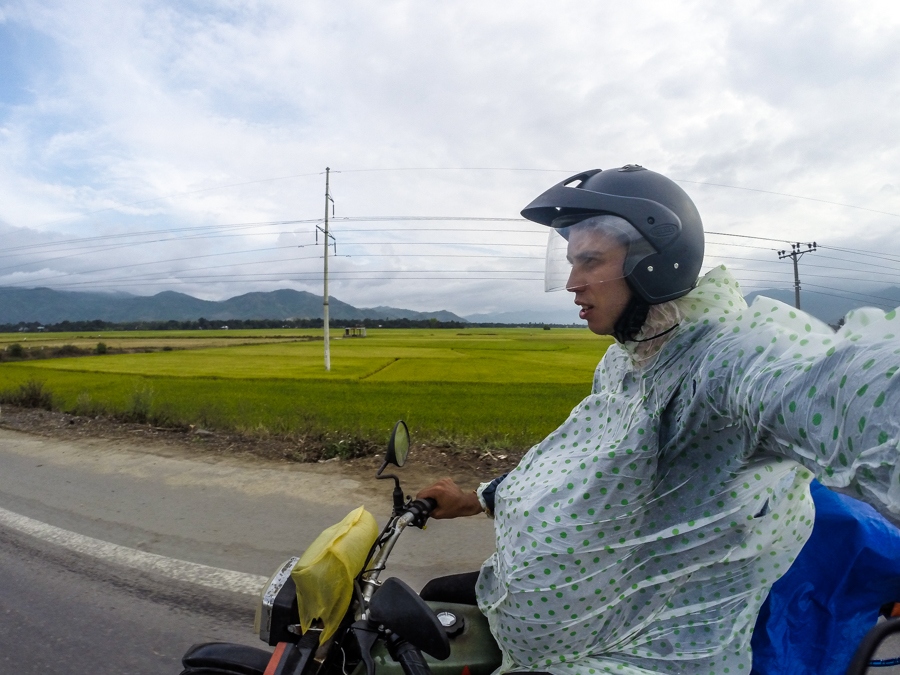
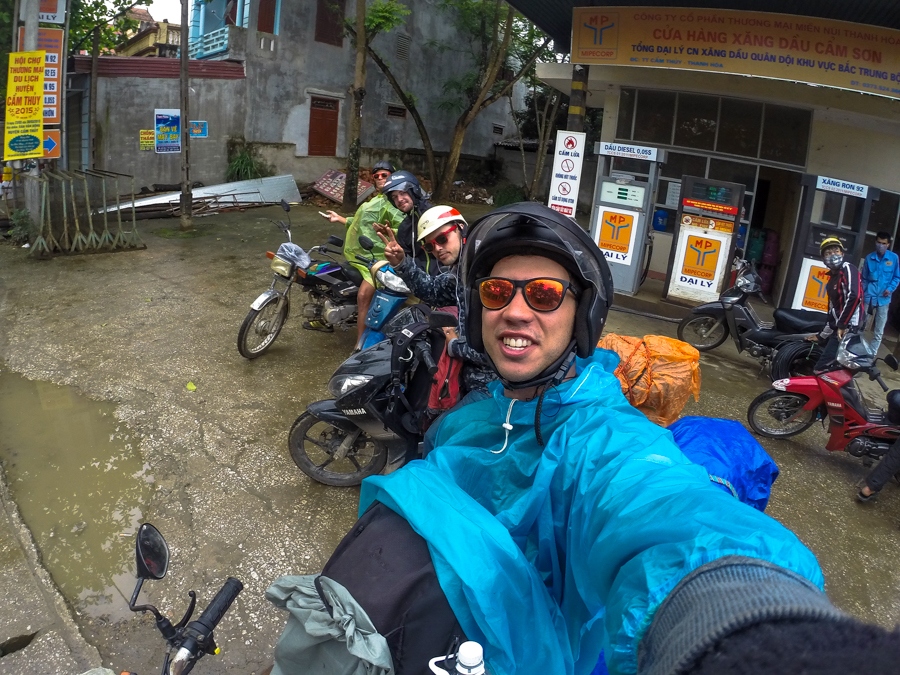
Where should you start? Ho Chi Minh or Hanoi?
I started in Ho Chi Minh City and believe it is the best starting point for a few reasons. First, I noticed more backpackers traveling from South to North, which meant it was easier to find other people to ride with as a solo traveller, and secondly, once you arrive in Hanoi, you have the option to continue exploring Vietnam and visiting Sapa and Ha Long Bay; the only downside is that b that bikes are more expensive in Ho Chi Minh so when you sell it in Hanoi your definitely going to lose some money.
What bike should you buy?
I’d recommend ridding a motorbike instead of a scooter, I think they are more comfortable, better suited for longer journeys, and they look bad ass. If you are going to ride a scooter expect to get a hard time from your bike buddies, I constantly gave mine shit.
This leaves pretty much only one option and that is the Honda Win which is the most popular motorbike for backpackers to do this trip on, they are however getting trashed up and down the country all year round, so your going to end up having to spend money on repairs at some point, luckily you can find a mechanic literally everywhere and Honda win parts are cheap and always available.

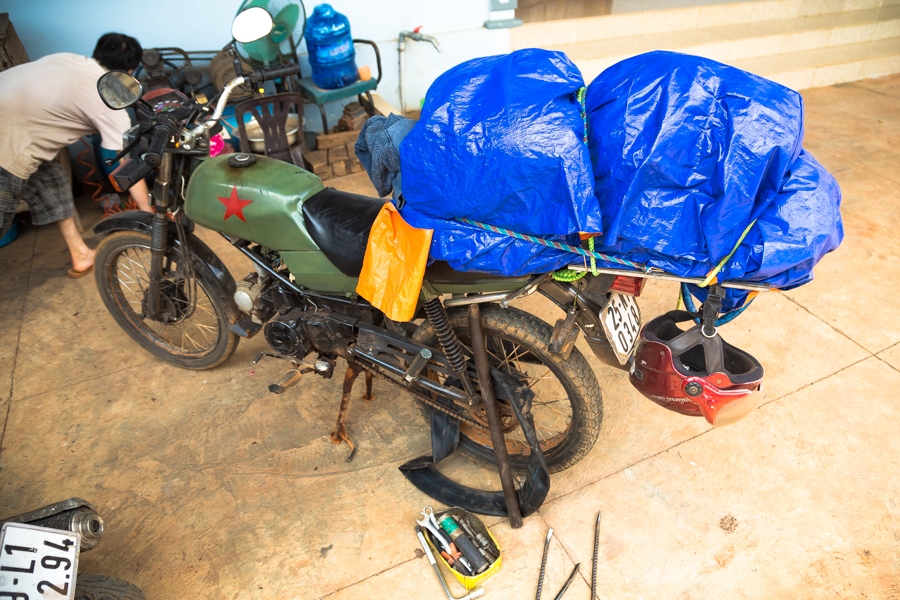
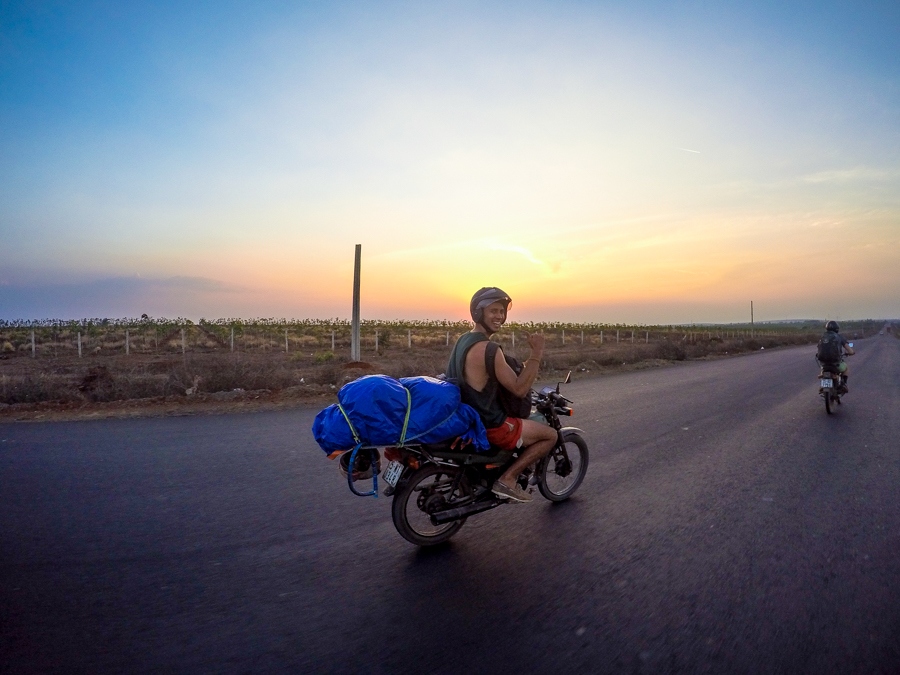
How much will a Honda Win cost me?
The best place to start looking is by searching for motorbikes on Vietnam.craigslist.org as you’ll find both bike shops and travellers are selling on here, also take a walk around the backpacking district you’ll find plenty of flyers in hostels and a few bike shops in this area, it is also good to talk to other travellers and let them know your looking for a bike.
I checked out a few bikes that backpackers had advertised in hostels, and I also hired a motor-taxi to drive me around to all the mechanics in Ho Chi Minh that were selling Honda Wins which was only about 6 shops, I think I looked at about 10 bikes and test drove 4 bikes before I picked one I was happy with.
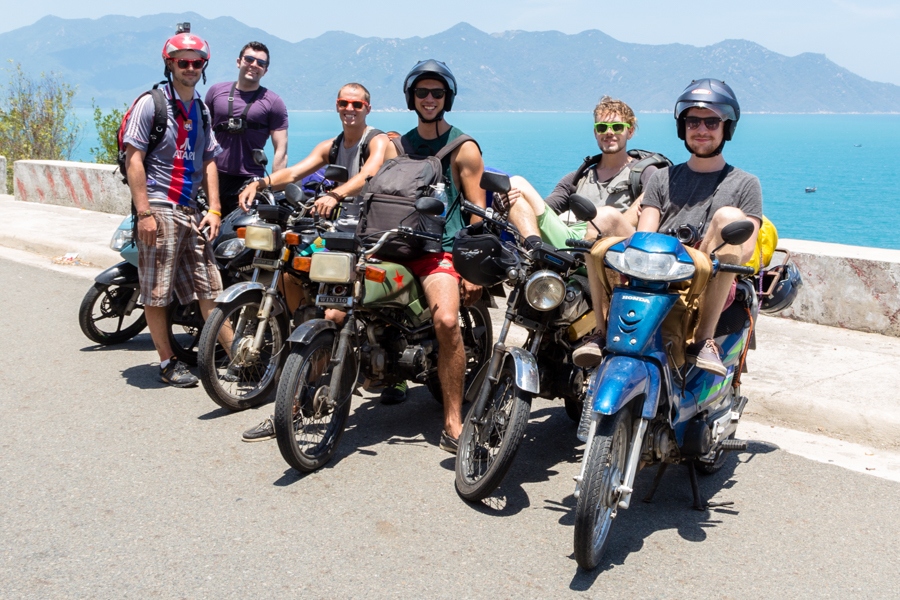
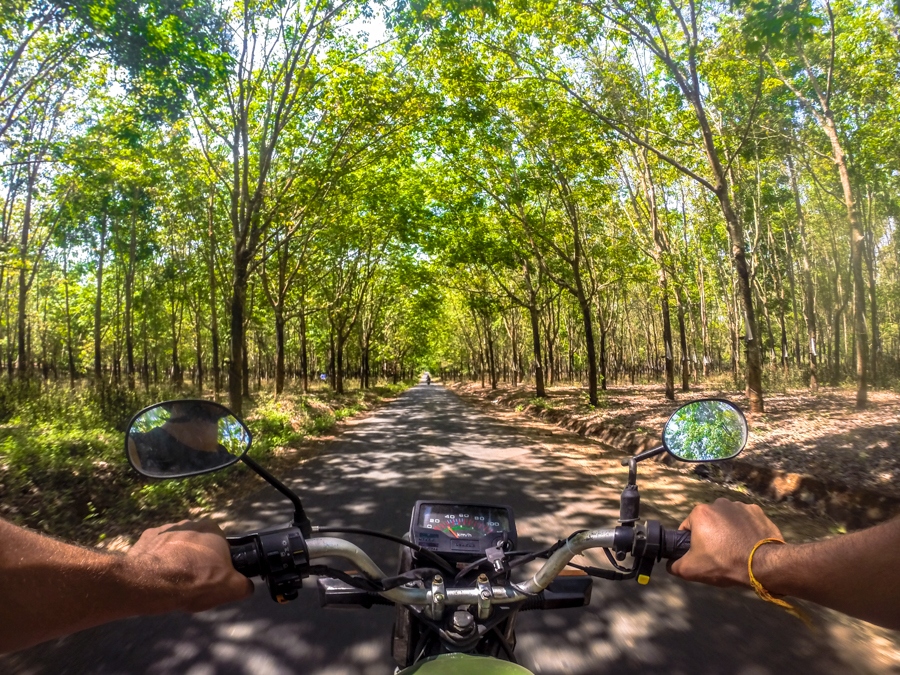
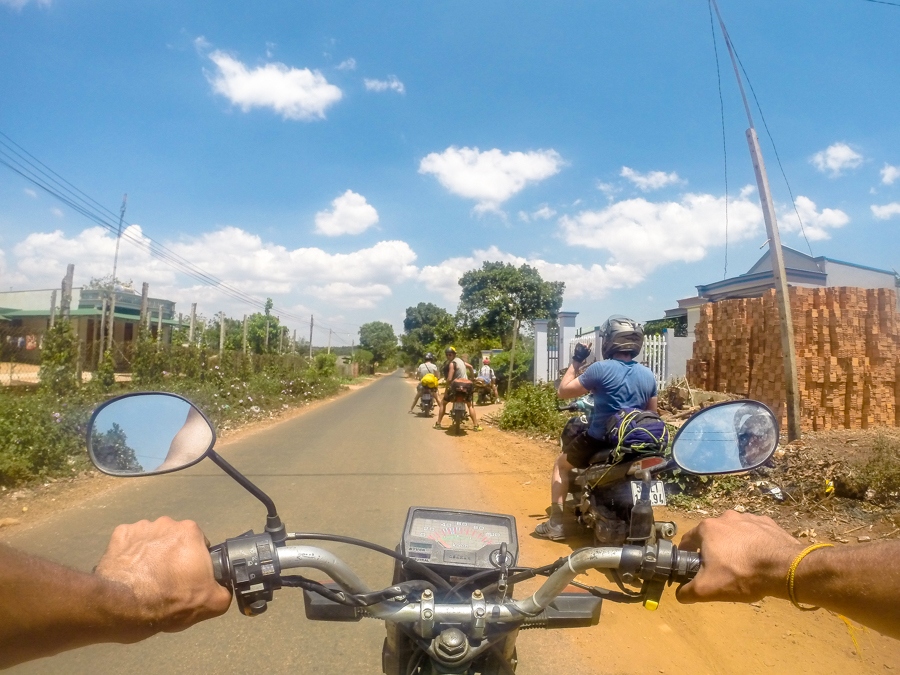
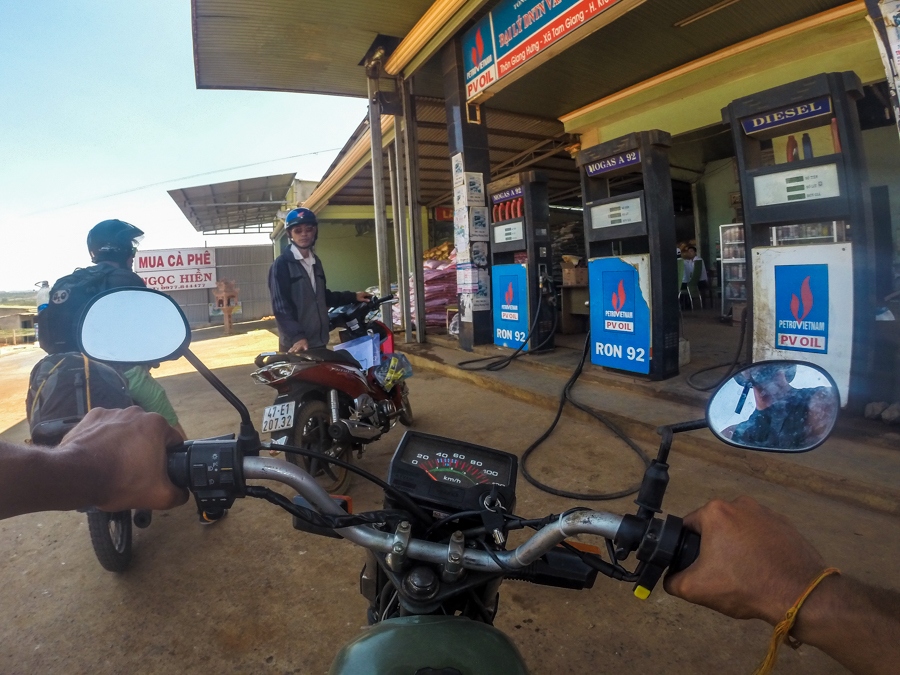
What should I look for when buying a bike?
Firstly check the lights are working (front light, break light, indicators), horn (you definitely need this), check how much tread is on the tire (are they new or are the worn out), now make sure you have the middle stand up so you can now spin the wheels to check the sprockets (spin the wheel around and make sure all the sprockets are there and that they are even and it looks smooth, if it looks sharp and the curves on the sprockets are uneven then it’s probably worn out) now check the chain (spin the chain around checking all the links and then grab the chain on the back sprocket in the middle and check if it is loose, if it is loose then it is probably starting to wear out as well) now take it for a test drive (test both the electric start and kick start) go for a drive for about 10 minutes to get a feel for how the bike rides (does the it change gears smoothly, what’s the clutch like, what’s the throttle like, check both the front and back breaks, does the engine run smoothly, are the wheels steady or does the back wheel wobble) now after your test drive you can now check to make sure the engine doesn’t leak oil after it has been for a ride.
It is hard to find a perfect bike, as most of them will have some problems that need fixing, the most important part of the bike is the engine as this will be the most expensive part to replace so make sure that runs smoothly and use my tips as a guide to help you find the best bike that is available.
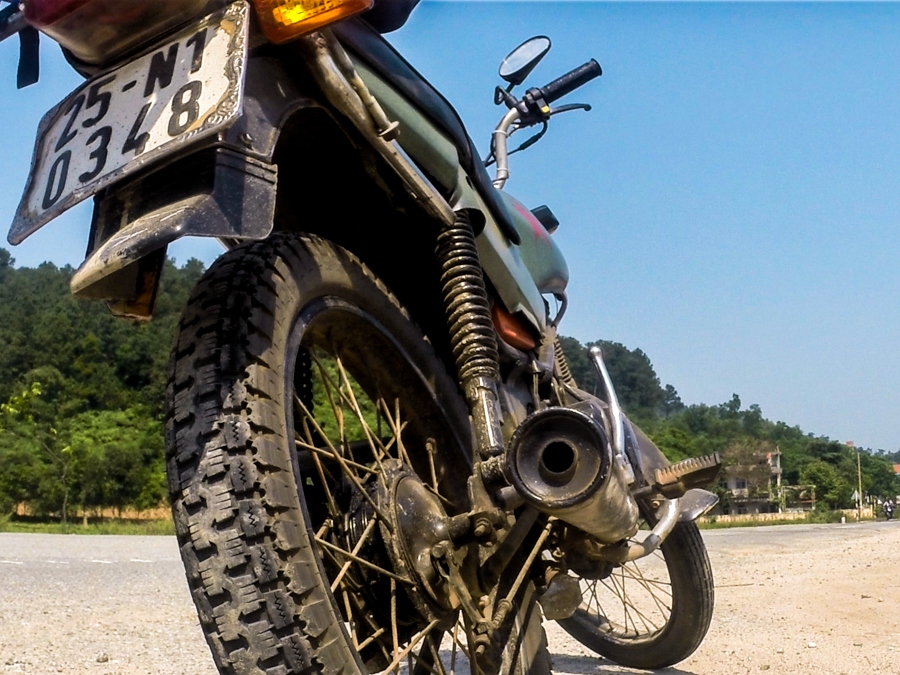
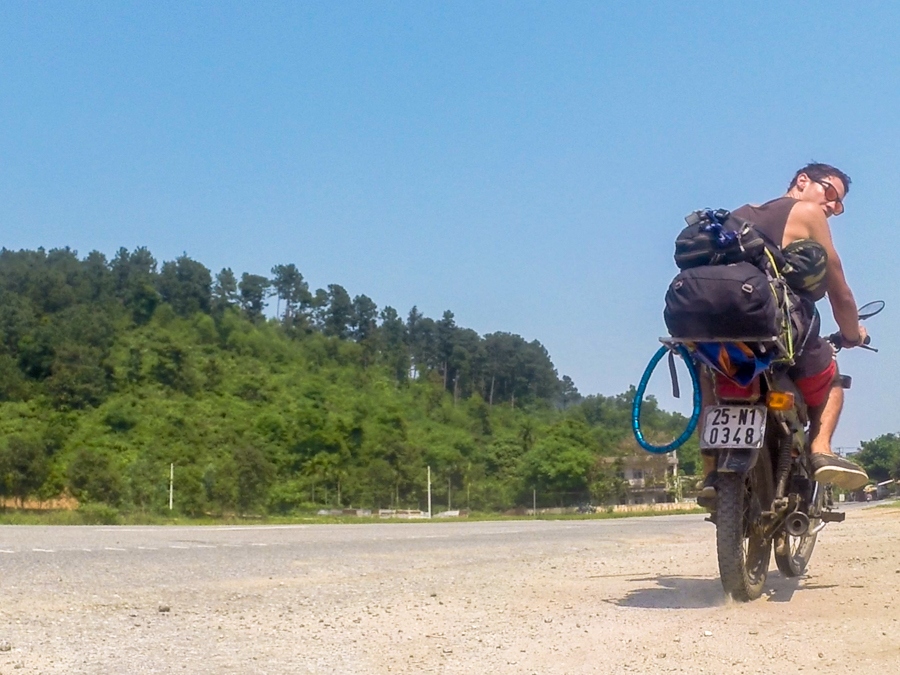
Yes I wore a helmet, my GoPro is attached to it, which is what I used to take this photo.
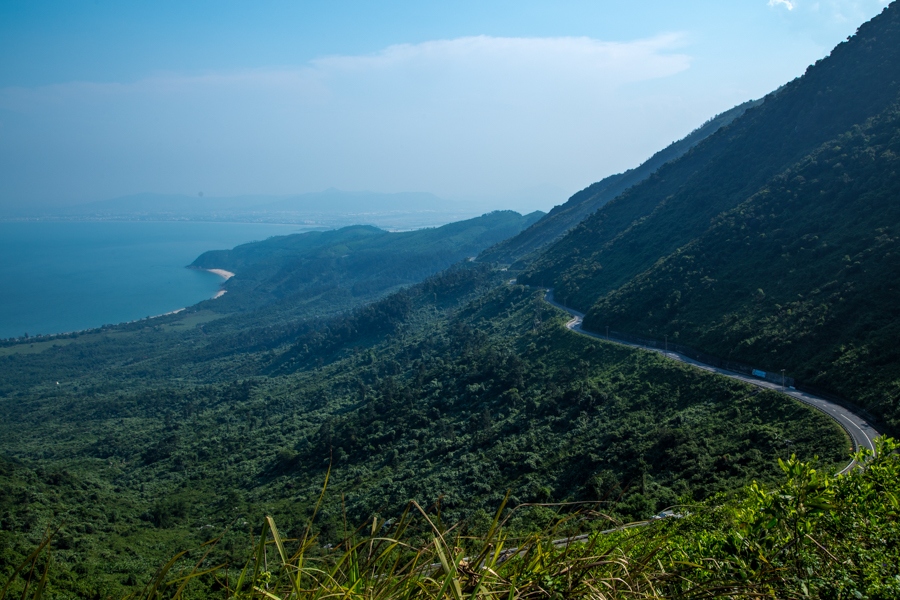
Ownership Card (Blue Card)
Once you decide on which bike to get make sure you receive the Blue Card (Ownership Card) (mine is pictured below), it will have someone else’s name on it which is fine, you just need this for when you want to sell your bike, or if you want to attempt to cross the boarder into Laos or Cambodia with the bike.
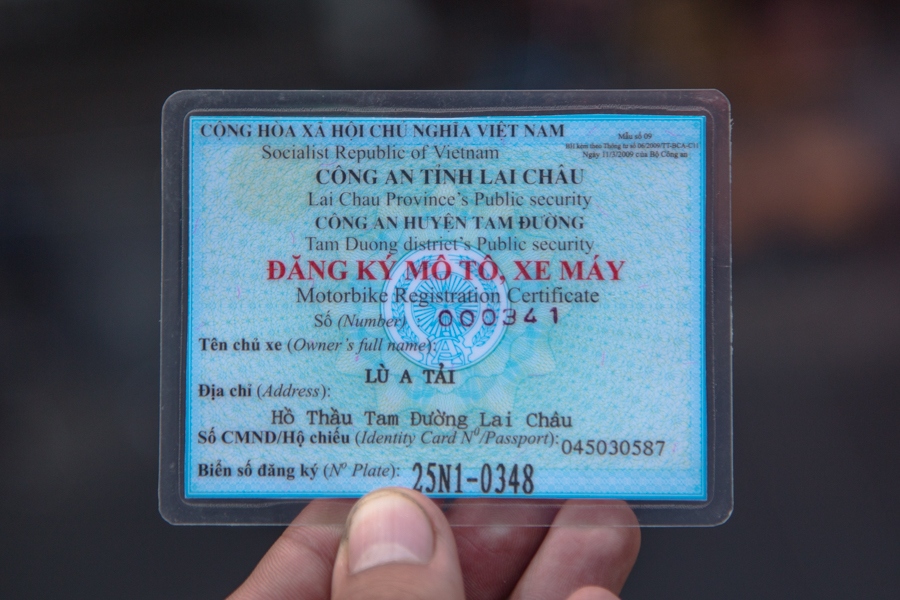
Bike Riding Equipment
Helmet: It is the law to wear a helmet in Vietnam for both riders and passengers, most bikes will come with a helmet however I recommend spending some money and get yourself a new helmet that is of good quality, I spent about $60 on a new helmet, as I think protecting your head is important and you don’t want to be a cheapskate here.
Make sure you wear shoes, wearing flip-flops is not a good idea, it is also good idea to wear gloves, pants and a jacket this will help protect you if you have an accident, however despite knowing all and as you can see from all my photos I still wore shorts, a t-shirt and no gloves while I was riding, luckily I didn’t have any accidents as I would have got torn up if I hit the ground.
Bike Accessories
You need a lock which I advised you use whenever you park up your bike, some bungee cords, you’ll need at least 2 to strap your backpack down to your bike (I had 4 to be extra safe), a poncho to cover yourself and either a tarp or garbage bag to cover your backpack incase it rains, these all can be picked up at any hardware store.
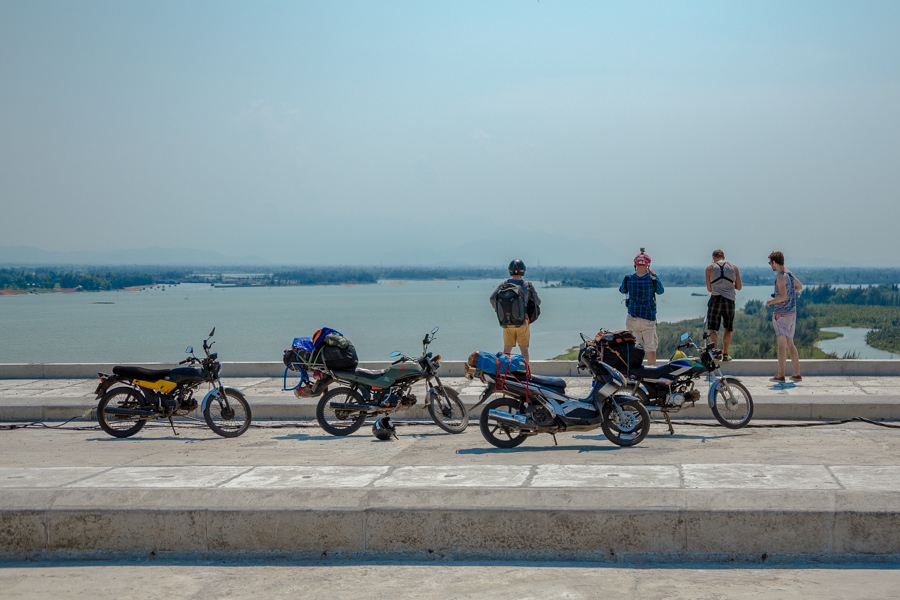
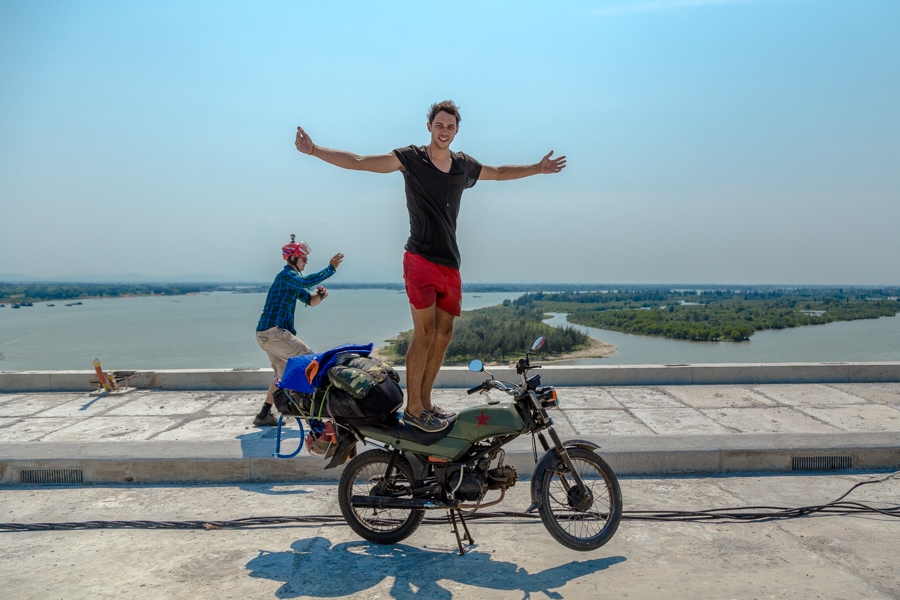
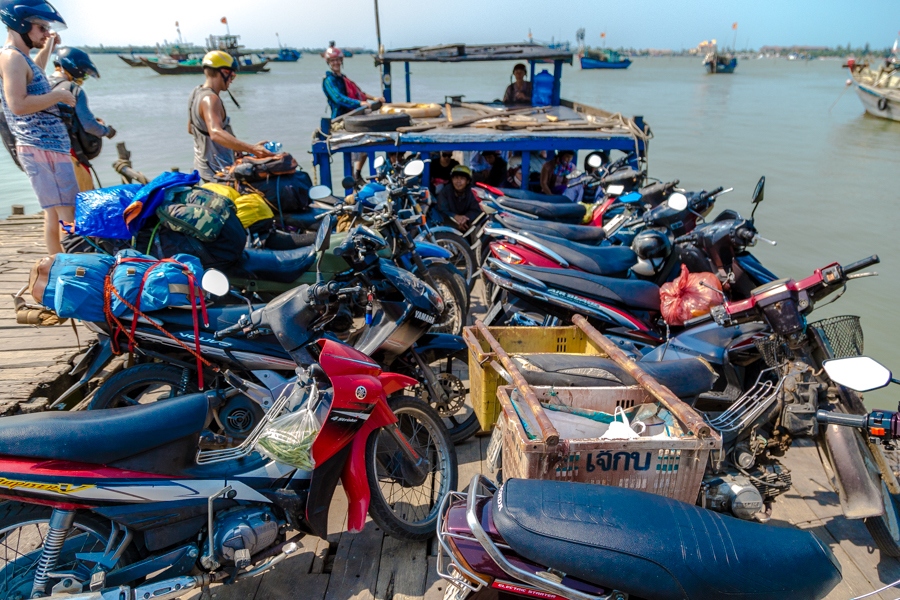
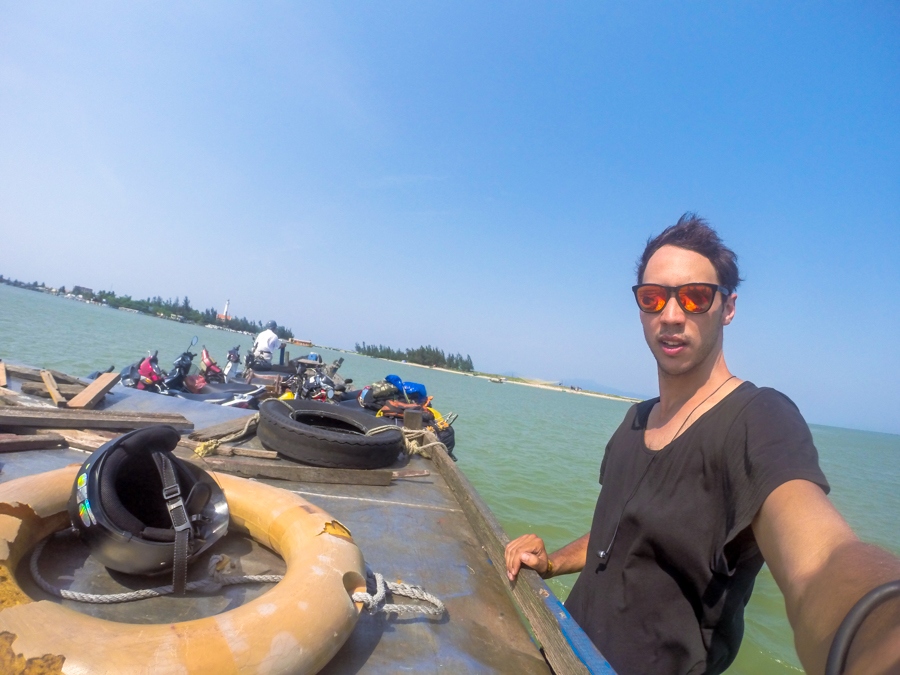
Will My Bike Breakdown?
Yes most likely, even when you think you’ve found a super smooth bike with no problems it is likely it’s going to breakdown at some point, out of the 5 other people I rode with not one of us got away without a breakdown of some sort, only 2 others had Honda Wins the other 3 had various types of scooters and they all had some problems along the way as well, so it doesn’t matter what bike you get your going to have some problems, I got lucky and only spent about $30 to fix a broken chain, dead battery, side stand, and a tire tube, however, I do know people who had lots of problems with their bikes and spent around $150 on repairs, and sometimes even more.
Bike Repairs and Maintenance
Bike shops are virtually ubiquitous in Vietnam; both times I broke down, I was within 100 meters of a bike shop. Look for a sign that reads “Xe Máy” (motorbike in Vietnamese) or a Honda emblem, since this will most likely be a garage where you can have repairs done.
You’ll also need to make some service stops along the way; it’s advised that you get your chain lubricated every 300km and your oil changed every 500-700kms to keep the engine running smoothly; getting your oil changed will cost you between 80,000 and 100,000 dong.
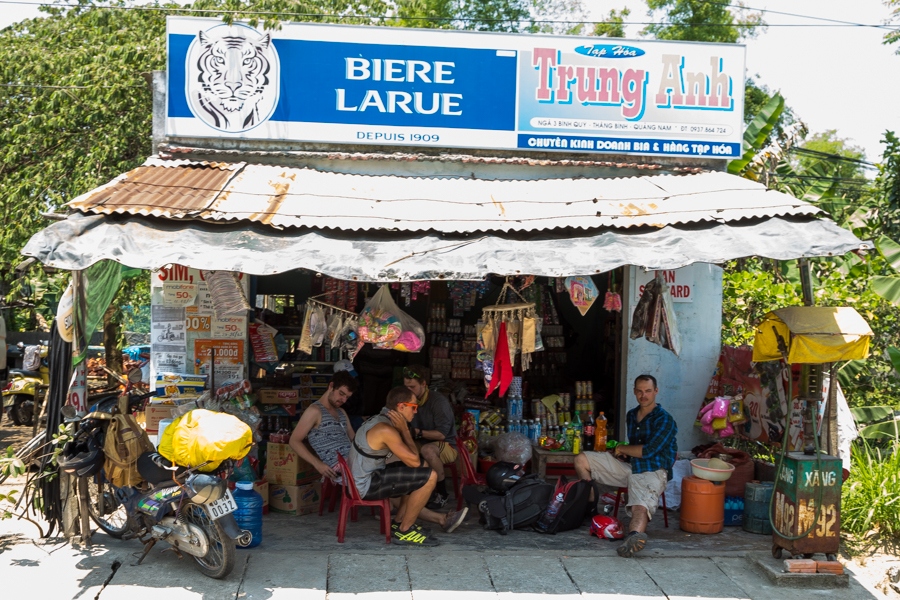
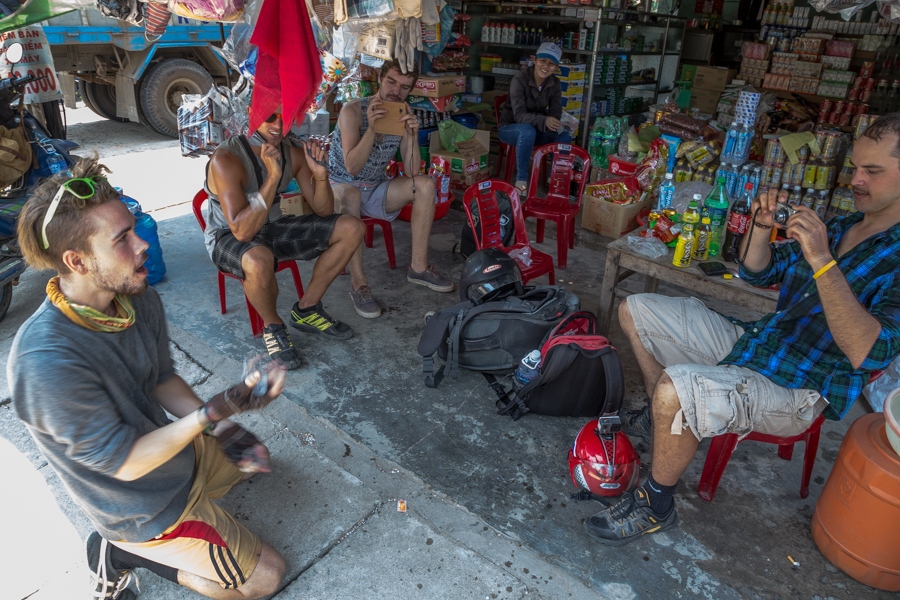
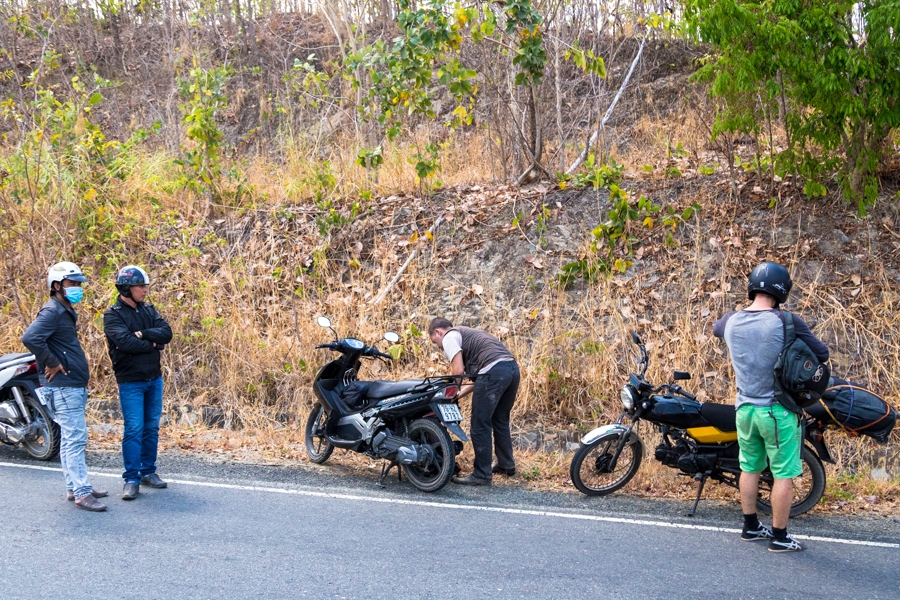
Where do you Stop Between Ho Chi Minh and Hanoi?
I’ve listed below the main cities you should visit in order below, this is where all the tour buses go to and where you’ll find other backpackers, activities to do and a party scene…
- Ho Chi Minh
- Mui Ne
- Da Lat
- Nha Trang
- Hoi An
- Da Nang
- Hue
- Phong Nha
- Hanoi.
I would advise you to take a similar route and to avoid highway one as much as possible, as it is congested with trucks and buses and is definitely a lot more dangerous to drive on, the best route to take is the Ho Chi Minh Trail (the Ho Chi Minh Trail is the route the VietCong took to get supplies and support from the north down to the south during the Vietnam war) it is also a much safer and saner route to take.
On average, you will travel around 200 kilometers each day, which will take you about 8 hours because the roads aren’t the finest, and most of these motorcycles will comfortably cruise at around 60 kilometers, some of the planned destinations are 400km or more apart so you just stop wherever you can find a hotel (khách san) or guest house (nhà nghỉ) knowing the Vietnamese name is helpful as it you wont see it written in English in the smaller towns.
As you can see on my map, the towns indicated in red are where we remained overnight; unless it was one of the popular cities I listed above, the only reason we stopped at these other little cities was because it was becoming too dark to drive, it began to rain, or we were experiencing bike issues.
These unexpected pauses along the route are amazing because they allow you to experience a different aspect of Vietnam. You encounter locals who aren’t corrupted by tourists and would never dream of ripping you off, unlike in touristy towns, the people in these villages are some of the friendliest Vietnamese people you’ll meet your entire trip, while your having dinner they will want to come over and share their food with you and share some of their local alcohol, while your walking the streets the kids will want to come over and have photos with you, this is stuff that you only get to experience when you travel by bike and end up in small cities that no tourist ever visit.

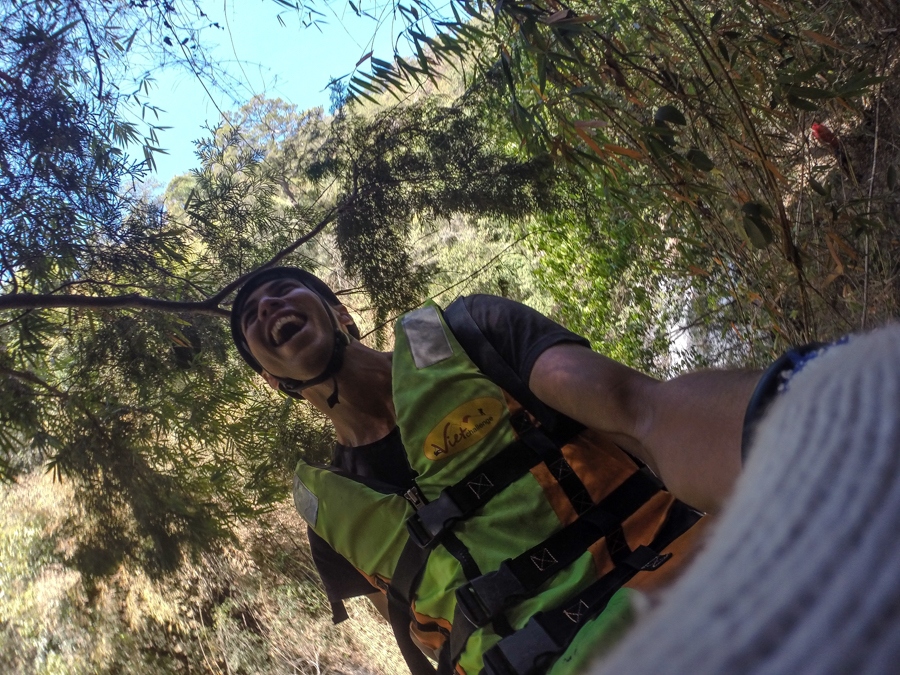

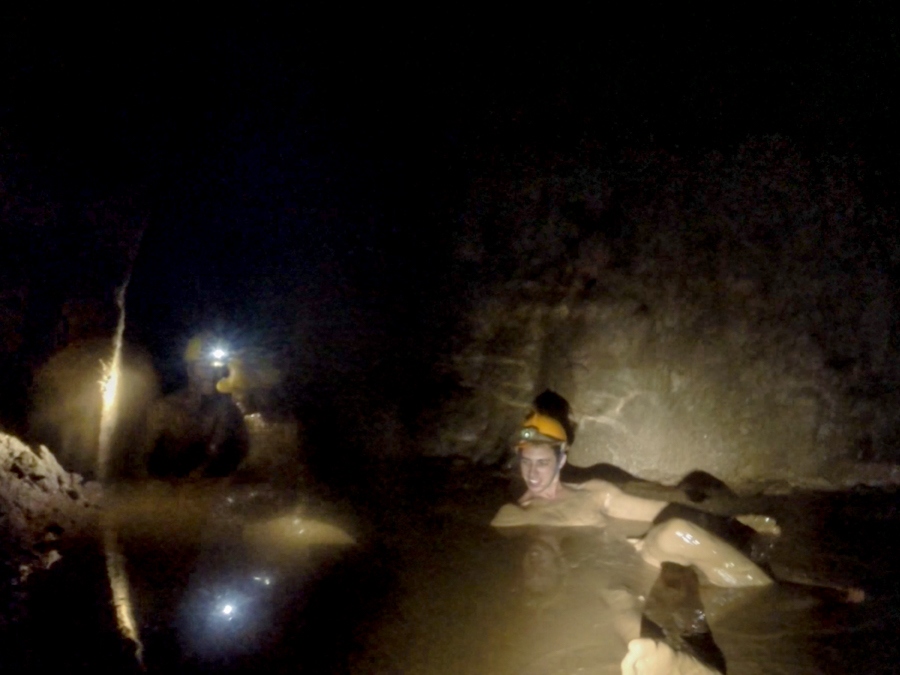
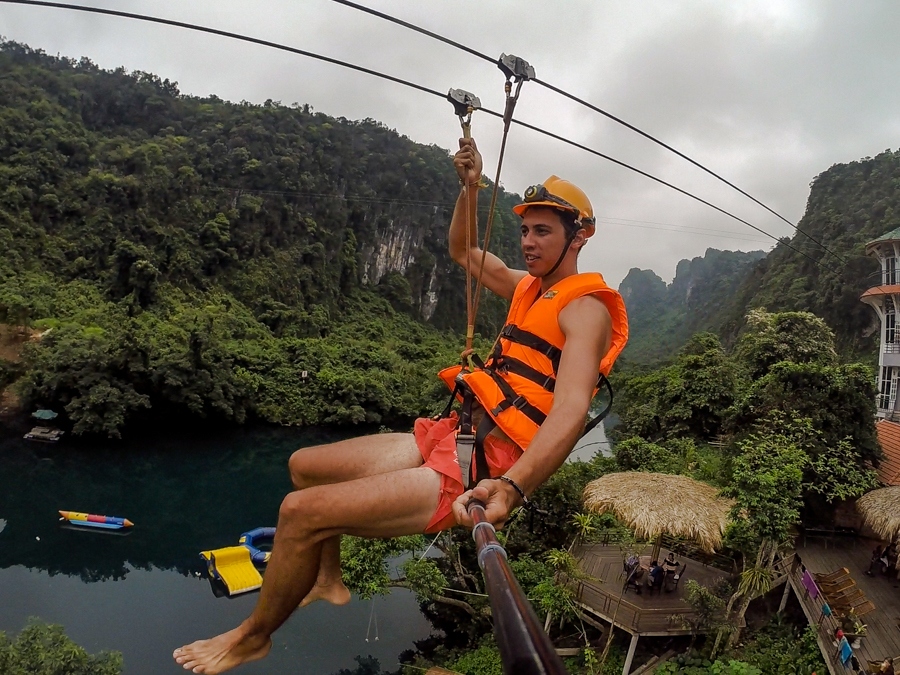
Navigating
The best way to navigate your way around the country is with your smart phone with GPS, download an app called maps.me and download the map for Vietnam, this works offline so you don’t even need to use data, however I also suggest you get a local simcard with data, I picked up unlimited internet for 1 month with some calling credit for about $20 which was good for using google maps, searching for places to stay and for keeping in contact with the others I was riding with as we often would lose each other while riding.
How long will Ho Chi Minh to Hanoi take?
If all you did was drive it would take about 9 days from Ho Chi Minh to Hanoi, but doing that would be ridiculous, I think you need about 5-6 weeks to comfortably explore Vietnam on a bike, about 4 weeks to travel from Ho Chi Minh to Hanoi and another 2 weeks to explore Sapa, Ha Long Bay, and Hanoi.
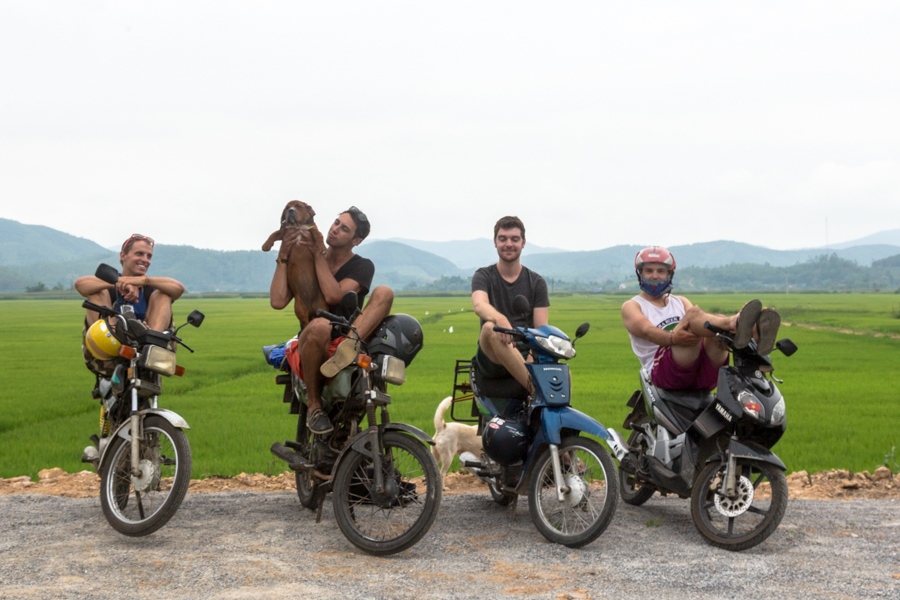
Should I checkout Sapa and Ha-Long Bay once I’ve made it to Hanoi?

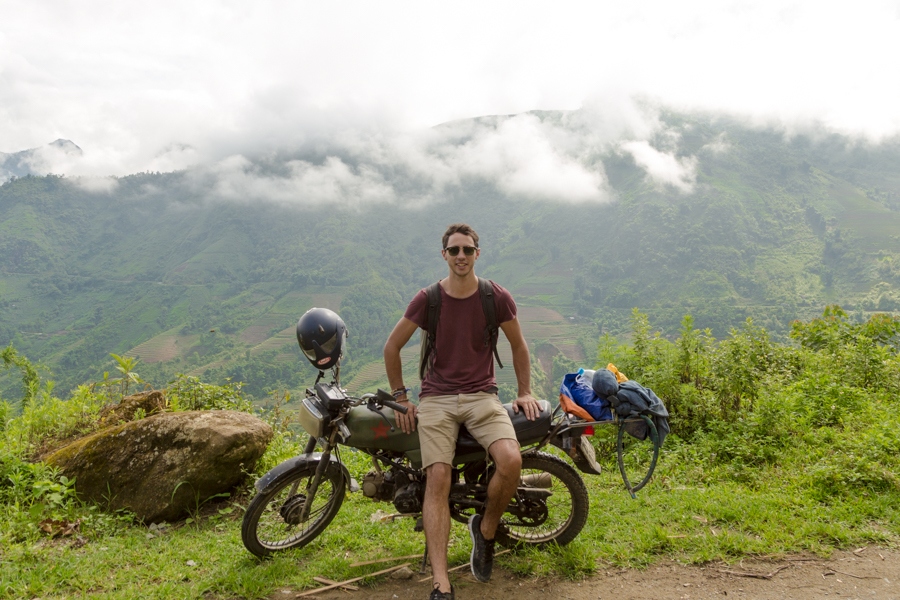
Getting a Visa
Most visitors to Vietnam will need a Visa before they arrive, I think if you are doing a big trip around South East Asia and you are pretty flexible then I recommend just getting your Visa while your in Asia instead of getting it beforehand, that allows you to be a bit more flexible with your plans, it only took me 24hour to get my Visa when I was in Phomn Pen in Cambodia, keep in mind it will take longer if your not in a capital city and that you can’t apply over the weekend and during the Vietnamese public holidays
A 1 Month Visa will cost you $60 and a 3 month visa will cost you $90, without a doubt I think you should get the 3 month visa as you really do need 5-6 weeks to properly ride around Vietnam and immerse yourself in the culture, trying to do it in 4 weeks will be rushed and you’ll also be rushed into selling your bike and you’ll probably lose money here.
I however got the 1 month Visa when I did this trip but I soon realised while I was travelling that it wasn’t going to be long enough so I decided to extend my visa which wasn’t cheap, to get a 3 month Visa extension it cost me $170 and took 10 days to process, a 1 month visa extension will cost around $70 and will take only a few days to process, pretty much everyone I met riding wished they got the 3 month visa to start with as most of the people I met who were riding bikes decided to extended their visas, or just overstay their visa and cop a massive fine.
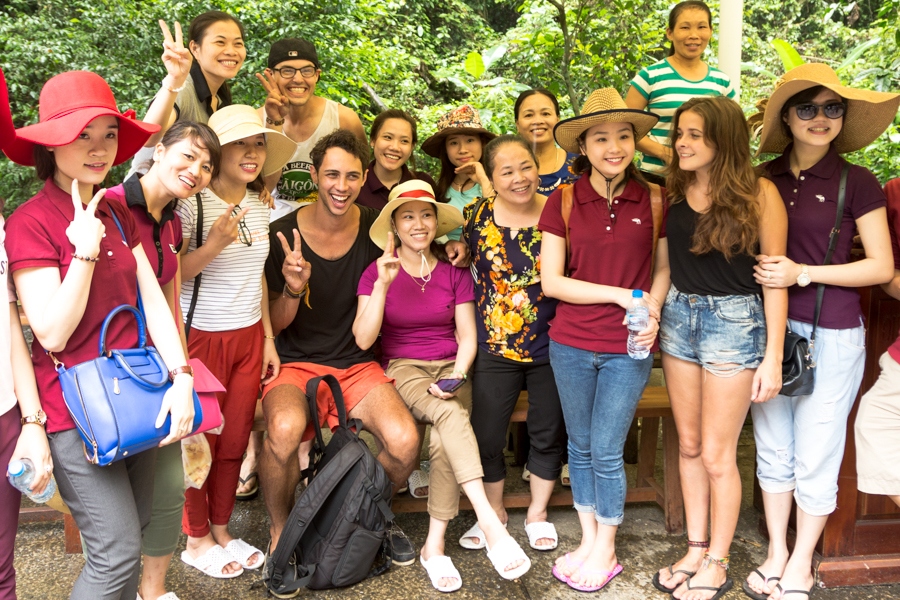
Selling the bike…
After having the most amazing travel experience its now time to sell your bike and move on, before you reach your final destination you can get it listed on Vietnam.craigslist.org and post the date it will be available, then once you arrive in your final destination make flyers and stick them up in the backpacking district, walk around with a sign taped to your shirt saying “bike for sale” whatever you do don’t let people know that your in a rush to sell it cause you have a flight or bus out of Vietnam the next day because they will just offer you the lowest price possible, I saw this happen a few times to other travellers trying to sell their bikes.
I posted my bike on craigslist but had the most success by riding around and talking to backpacker and letting people know I had a bike for sale, I bought my bike for $300 in Ho Chi Minh and sold it onto another backpacker I had met from walking around for $220, I spent about $30 on repairs, so all up it cost me about $110 for having a motorbike for 3 months while I was in Vietnam.

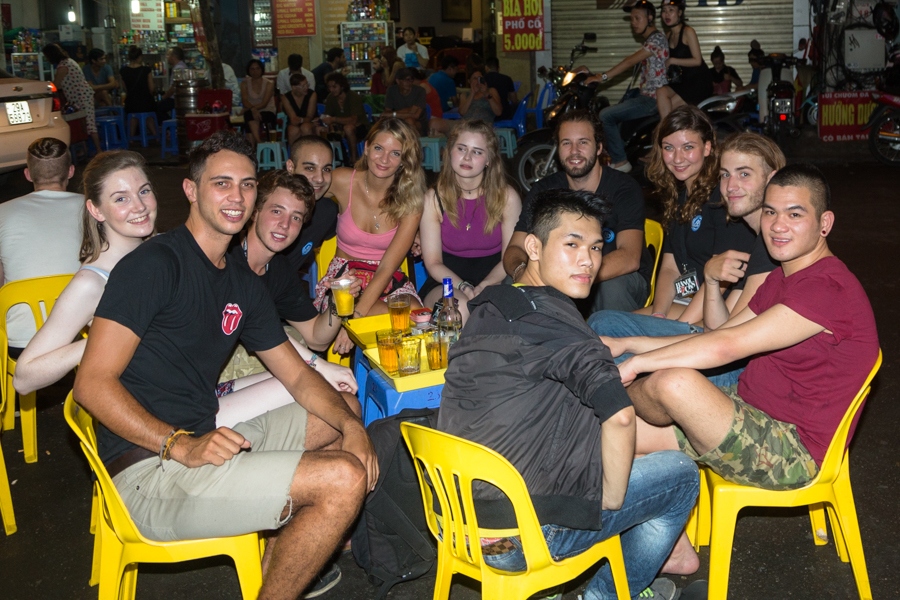
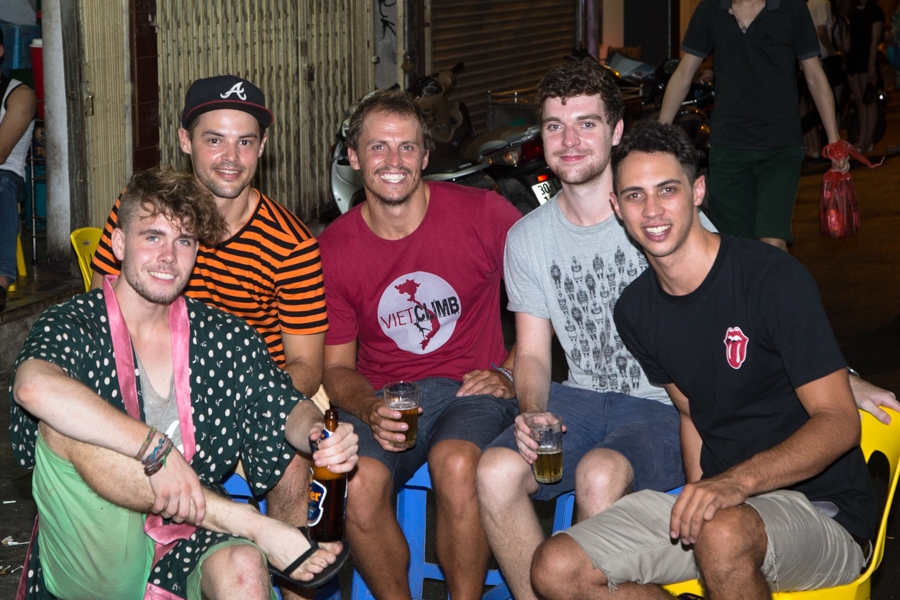
One Last thing…
Riding a motorbike across Vietnam has easily been the best travel experience I’ve had yet, I made life long friends that I shared amazing memories with, the freedom that you get from having with a motorbike is amazing, being able to go off and explore anything you want whenever you want is just the best, everyone I’ve met that has also ridden across Vietnam agrees and to be honest I’ve researched other countries I could explore on a motorbike, as I think it is the best mode of travel
